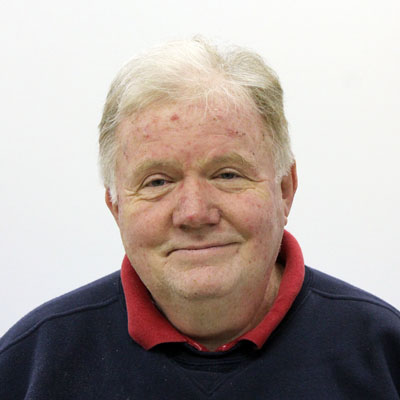Rob Reilly Ed.D.
reilly@media.mit.edu
USA +1.413.329.1878 (mobile)
USA +1.413.443.6153 (home)The opinions expressed on this website are the opinions
of the author and not necessarily the opinions of the IEEEWhat are the major issues facing IEEE?
In no particular order my list of major issues includes:
- MANAGING INTELLECTUAL PROPERTY: First, our traditional subscription-based business model will not support 21st century publication needs, and, secondly, IEEE is ‘adjusting’ the financial formula by which Societies’ receive revenue from their publications (a major source of revenue); soon Societies will not receive publications-generated revenue directly; IEEE will. To solve this, Societies must diversify their revenue streams. [See my expanded response below in the “number one goal” question.]
- SOCIETY’S RESERVE FUNDS: currently revenue that should be usable by all Societies is being redirected to offset costs generated as corporate-IEEE continually overspends its budget. We must decrease the (infamous) ‘Infrastructure Charge,’ which is a euphemism for corporate-IEEE overspending their budget. Societies must develop long-term financial plan/goals whereby they can spend a greater percentage of our reserves. Societies must also establish non-publications-based revenue streams through a diverse revenue portfolio.
- BASIC SOCIETY REVENUE: we must experiment with membership dues models (e.g., diversity in bundling publications, products, and services; combining them with innovative delivery methods (e.g., online, in-print, YouTube, Skype)). Sufficient funds exist in IEEE reserves so that we can afford to experiment with various models.
- PROFESSIONAL NETWORKING: we as Societies have a major conduit through which to provide professional networking to our members – we have our Chapters. Currently the only requirement for a Chapter is to conduct 2 technical meetings per year, which is far too low a measure to produce meaningful/quality products and services to our members. The IEEE must revise and expand the function of Chapter so that one of their prime goals includes professional networking.
- A HUMANITARIAN IEEE: As the world becomes increasingly ‘flat,’ engineers must think about sustainable solutions that accommodate the environmental, cultural, structural, political, and socio-economic conditions where their engineering masterpieces will be deployed.
- ANNUAL MEMBERSHIP LOSS: we simply must stop loosing 80,000+ members per year. While the total IEEE membership continues to grow, we must investigate and resolve the reason(s) for our losses. I believe that we are losing members due to several identifiable failings. To fix this situation we need to: a. establish a functional hierarchical structure for our student activities, which at present is, terrific is some instances, but generally haphazard, and, b. re-engineer the function of our chapters. The members need services that can only be provided at the local level (e.g., mentoring, community outreach, networking, student contact).
- MULTILINGUAL & TRANSNATIONAL NATURE OF THE IEEE: membership growth in recent years has primarily come from areas outside the USA. This creates a language problem. There are related issues but those issues are derivative effects of the non-English language issue. Among other things, IEEE’s mandate that all technical publications be in English must be revised so that non-English speakers can publish scholarly material in their language, IEEE must also reestablish the IEEE Transnational Committee to advise and make recommendations to the IEEE Board of Directors about transnational issues (e.g., creating non-English IEEE transactions, newsletters in non-English languages, allow Senior Member Elevation recommendations in languages other than English, etc.).
- STUDENT ACTIVITIES: we lose a tremendous number of student members each year. We must stop this loss. Student activities seem to be too haphazard (in-general) and lack a well-defined structure. Granted IEEE-MGA and Societies have a concerted effort for student activities, and Regions have highly functional student activity committees; but even with this leadership, the existing programs and ‘student units’ are nebulous parts of an ill-defined student structure; we must create a well-defined structure for student activity and provide a transitional path to regular IEEE membership!
- ONLINE CAREER RESOURCES & CONTINUING EDUCATION: given the available technology and the continuing need for members to upgrade skills/knowledge, this must be a critical aspect of IEEE’s product menu. A few IEEE operating units are moving in this direction; however this seems to be best coordinated at the IEEE level to prevent creating disconnected silos of excellence.
- FISCAL RESPONSIBILITY: This is a wide ranging issue. Aside from the obvious issues, it includes: evaluating the functional/cost-effectiveness of outsourcing, among other things, the production of our world renowned publications, and monitoring the growth of the number of IEEE employees and their function. And as I previous mentioned, the current IEEE fiscal model continues to take funds from Society’s revenues to offset IEEE corporate overruns (a.k.a., ‘Infrastructure Charges’).
- IEEE BUSINESS MODEL: given the rapid progress of IEEE’s globalization and the evolution of technology, new highly agile business models are needed. We need to enlist IEEE members who have expertise in business management as well as outside consultants who can provide leadership in fiscal/business management. We are not making sound business decisions, for example, half of IEEE’s revenues result from the sale of publications and now we are heading toward “Open Access” of our publications, which is to disseminate scholarly research literature online, this greatly threatens our revenues from membership. Prevailing attitudes are that: “I can get everything I want from IEEE for free from my employer, so, why should I be a member?” IEEE may be making excellent business decision BUT our Societies tend NOT have a plan to deal with the derivative effects.
- MEMBERS FROM INDUSTRY: Half of IEEE members work in industry and their attitude tends to be that: “the articles in IEEE publications are by academics, for academics” and thus not functional for industry practitioners; IEEE must create publications and activities with top quality practical content. This would only be a start to bring more services and products for industry members. This situation will also test our ability to be agile!
- ISLANDS OF EXCELLENCE VS. FEUDAL SILOS: given the size of the IEEE it is inevitable that islands (of excellence or inactivity) evolve and loose contact with other islands. Unfortunately, this ferments the creation of feudal silos and inhibits collegial interactions. I want to facilitate the elimination of feudal silos between IEEE operating units, which will foster, among other things, cooperative approaches on initiatives and problems.

